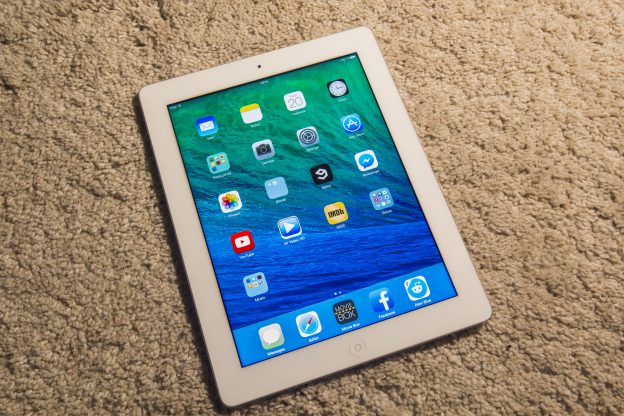It never ceases to amaze me just how much time can be eaten up with all forms of social media and the latest time-saving applications. We’ve all been there – the quarterly HST remittance is almost due, everything on your desk is waiting for your attention – less stimulating administration, forecasting, and cash flows, not to mention the much needed business development calls, writing and scheduling – but wait…just one more notification to check, one more post to be commented on or liked, just one more tweet, just one more intriguing article from Forbes, Entrepreneur or the Pulse.
Before we realize it, 2 hours have passed and what have we to show for it? We can all get easily caught up in social media slavery, yes, slavery – something from which we cannot easily extricate ourselves.
Among other definitions, Merriam-Webster defines slavery as 1) one that is completely subservient to a dominating influence and, 2) a person who is strongly influenced and controlled by something. Oxford defines slavery as excessive dependence on or devotion to something.
Although social media is a tremendously efficient way to share our brand, establish connections , share information and strengthen customer relationships, at what point to we stop seeing it as a tool and start allowing ourselves to be pressured and molded by the growing expectation of being available and online 24/7?
At a time when we are finally dropping the workaholic mindset prevalent among Baby Boomers and making great strides in work-life balance, as often promoted by Generation X; along comes Generation Y, the Millennials, who often expect immediate response times and around-the-clock social engagement. With Facebook now blatantly monitoring and announcing response times of FB Business Pages and customers wanting instant answers through Twitter, text and Messenger, are we now succumbing to the pressure, essentially throwing away all our progress towards a healthier, balanced lifestyle?
According to recent survey findings in The Social Habit, 32% of respondents who have attempted to contact a brand, product, or company through social media for customer support expected a response within 30 minutes, 42% expected a response within 60 minutes. (More info can be found at www-dot-edisonresearch-dot-com/social-habit-report/)
In this fast-paced digital environment, is it reasonable to expect all social media inquiries be answered within the hour? Are we adding to the disillusionment and creating more workplace stress when we divide our attention at a meeting, step away from a real face-to-face client, or worse yet, answer inquiries during family supper or late night hours in order to meet a customers’ anticipated response time? This survey also indicated that 57% expected the same response time at night and on weekends (during normal business hours). I would be remiss not to mention, however, that those who responded to the survey are those who have inquired through social media, which would naturally give rise to far different results than if it had been given to the general population which would likely include those who would prefer to inquire through other means, i.e., face-to-face or telephone.
With the ease of the mobile workspace, independent of location and accessible online 24/7, boundaries are becoming increasingly blurred. It is up to each one of us as professionals, employers and entrepreneurs to set the pace for the up and coming, tech savvy generations and fiercely maintain that healthy distinction between our personal and professional lives, allowing us to de-stress and clear our minds to go back to the workplace even more ready to give our best customer service and undivided attention.
Those who do expect around-the-clock support can get instant inquiries from larger global corporations who have the staffing capacity 24/7 across different time zones – in the real world of small business however, balanced professionals take control of their lives and take the needed time for personal pursuits, passions, family responsibilities and rejuvenation. Often the danger lies, not in simply using social media to complement our customer service and promote our business, but in the constant connection and check ins that quickly grab our attention away from our own agendas which then leads us down the rabbit hole of endless digital diversions.
In a world with increasing workplace stress, conflict and disengagement, keeping our own physical and mobile workspaces family-friendly and human-family can do much to help shape the prevailing expectations around instant gratification and, essentially, free us from the increasingly systemic social media slavery.
Over the second weekend in January, I participated in #weekendoffline and I was amazed at how much more I could accomplish by simply avoiding all forms of social media for 2 days, including LinkedIn. Focusing on more productive, balanced weekend activities while investing more time and energy on my own passions and pursuits, allowed me to achieve so much more than if I spent that time merely observing the lives of others in the virtual world. Instead of skimming surfaces, experiencing FOMO, and living vicariously, I successfully carried out my own healthy and value-driven agenda – meditation, a nature hike, intentional long-term planning and goal-setting, hosting a social gathering for a local support group, trying my hand at a yummy new recipe which turned out to be a big hit, reinventing a new one-of-a-kind necklace from two old pieces with the help of a kindred spirit, and completing two lessons of a mindful professional development course. In the end, I felt better connected, fulfilled and grounded.
Although the desire to be constantly connected will continue to exert its pull on me, I intend never to give in entirely to this ongoing tug-of-war; not only did I survive the 2 days without social media, I thrived!

